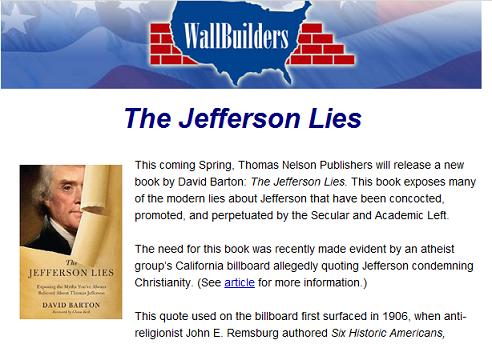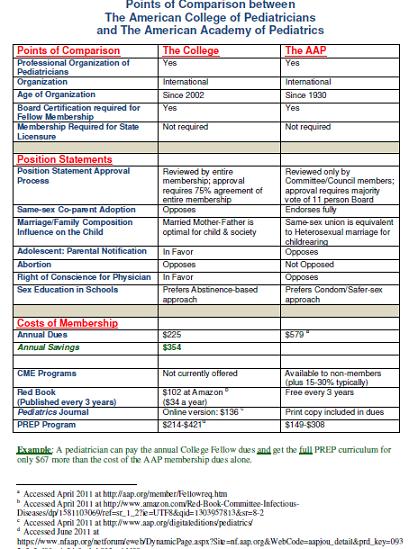Today Right Wing Watch has a clip of David Barton claiming that the Founders based our republican form of government on Exodus 18:21. He added that some Founders actually referred to the Exodus passage as the basis for electing people to various office at the local, state and federal levels. Here is the clip:
Barton claims that “God set out elections at the very beginning.” He added that Israel was a monarchy later but before that “God established elections.”
However, that is not what happened according to Exodus 18. To get the context, I cite here Exodus 18:13-26. In this passage, Moses is lamenting to his father-in-law, Jethro, that he has to judge disputes of the people all day long. His father-in-law responded to Moses’ complaint with some good advice.
13 The next day Moses took his seat to serve as judge for the people, and they stood around him from morning till evening.14 When his father-in-law saw all that Moses was doing for the people, he said, “What is this you are doing for the people? Why do you alone sit as judge, while all these people stand around you from morning till evening?”
15 Moses answered him, “Because the people come to me to seek God’s will. 16 Whenever they have a dispute, it is brought to me, and I decide between the parties and inform them of God’s decrees and instructions.”
17 Moses’ father-in-law replied, “What you are doing is not good. 18 You and these people who come to you will only wear yourselves out. The work is too heavy for you; you cannot handle it alone. 19 Listen now to me and I will give you some advice, and may God be with you. You must be the people’s representative before God and bring their disputes to him. 20Teach them his decrees and instructions, and show them the way they are to live and how they are to behave. 21 But select capable men from all the people—men who fear God, trustworthy men who hate dishonest gain—and appoint them as officials over thousands, hundreds, fifties and tens. 22 Have them serve as judges for the people at all times, but have them bring every difficult case to you; the simple cases they can decide themselves. That will make your load lighter, because they will share it with you. 23 If you do this and God so commands, you will be able to stand the strain, and all these people will go home satisfied.”
24 Moses listened to his father-in-law and did everything he said. 25 He chose capable men from all Israel and made them leaders of the people, officials over thousands, hundreds, fifties and tens. 26 They served as judges for the people at all times. The difficult cases they brought to Moses, but the simple ones they decided themselves.
Moses did not put the matter to the people in an election. He simply chose able people who could serve as judges over the people. It is remarkable to me that Barton would claim that this passage is the basis for popular elections when the Bible is clear that Moses did the choosing and appointing.
Barton then insists that the Founders referred to Exodus 18:21 as the basis for Article IV, Section 4 of the Constitution. That section states:
The United States shall guarantee to every State in this Union a Republican Form of Government, and shall protect each of them against Invasion; and on Application of the Legislature, or of the Executive (when the Legislature cannot be convened) against domestic Violence.
In the short clip, Barton does not give any names; he just says “the Founding Fathers who wrote that cited Exodus 18:31 as the basis.” I will have to study this a bit more but an initial search for confirmation of this has come up empty.
On Barton’s Wallbuilder’s website, Barton links the verse to early writers but he actually adds the reference to their writing. For instance, consider this reference to Noah Webster. Barton quotes Noah Webster and adds the reference to Exodus 18:21.
Founding Father Noah Webster delivered a similar admonition:
Let it be impressed on your mind that God commands you to choose for rulers just men who will rule in the fear of God [Exodus 18:21]. . . . [I]f the citizens neglect their duty and place unprincipled men in office, the government will soon be corrupted . . . If [our] government fails to secure public prosperity and happiness, it must be because the citizens neglect the Divine commands, and elect bad men to make and administer the laws.
However, in Webster’s book, the reference is not there:
Webster did not cite Exodus 18:21 as a basis for favoring elections as Barton implies on his website. Barton leaves a false impression that James Otis referred to the Exodus passage when, in fact, he did not. Elsewhere on the Wallbuilder’s site, he claims that Exo. 18:21 supports the Republican form of government but does not cite anyone who wrote the Constitution.
Even if a Framer did refer to the Exodus passage, that would not mean that Framer was correct in asserting that God established elections via the advice from Jethro. Many Framers believed that leaders should fear God and be honest. However, this does not mean they took the concept of representative government from Exodus.
Clearly Jethro’s advice was enlightened. Moses needed help and delegating authority was a wise approach. However, Jethro did not advise Moses to nominate some good people and then let the people vote.

